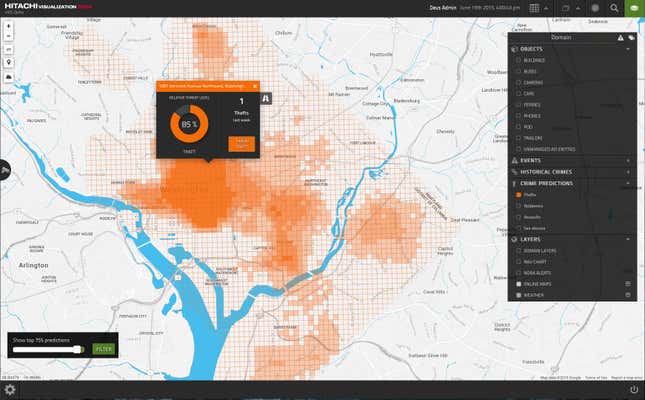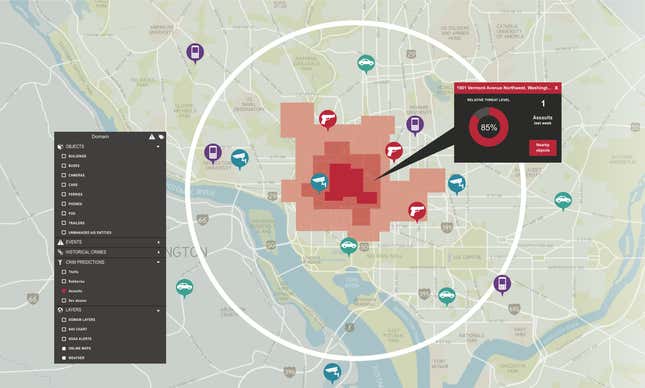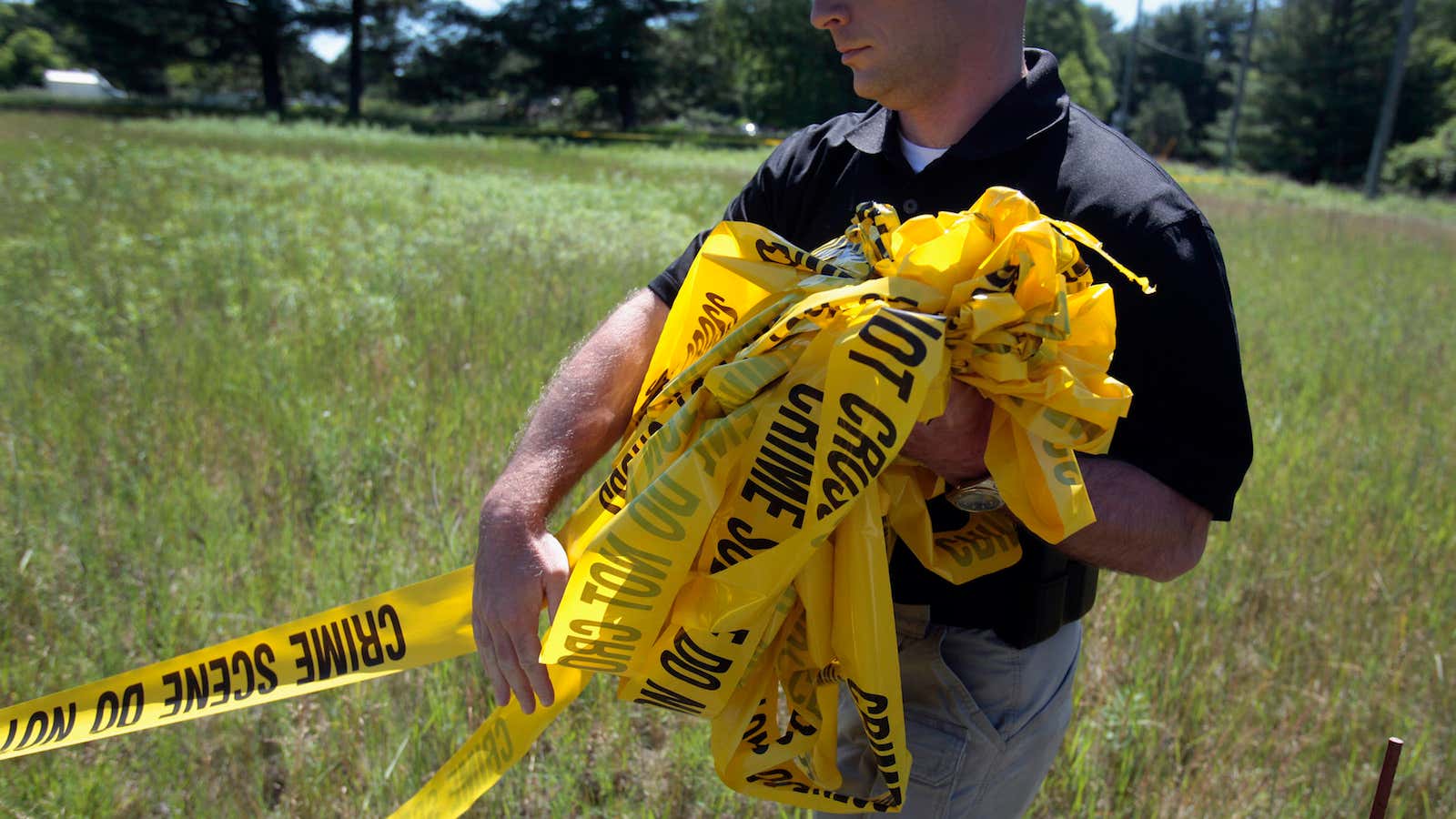What if the future of law enforcement doesn’t involve faster, more forceful responses to crime—but rather, a surefire way to predict it?
Hitachi, the Japanese tech giant that makes everything from elevators to security systems, seems to have faith in the latter. It announced today (Sept. 29) that it’s developed a robust new technology that can pinpoint where and when a crime will occur. The system, called Hitachi Visualization Predictive Crime Analytics, gobbles massive amounts of data—from public transit maps, social media conversations, weather reports, and more—and uses machine learning to find patterns that humans can’t pick out.

“A human just can’t handle when you get to the tens or hundreds of variables that could impact crime,” Darrin Lipscomb, an executive in Hitachi’s Public Safety and Visualization division, told Fast Company. Mark Jules, another executive, said that police officers usually build crime-prediction models based on their personal or collective experience—but the Hitachi system doesn’t need anyone to fiddle around with correlations and variable weights. Given a heap of data, it does it by itself.
The system can specify potential crime scenes down to a 200-square-meter spot, and it assigns relative threat levels to every situation.

Hitachi’s system, which the company plans to put into a trial run at police departments in a handful of unspecified cities starting in October, raises two major concerns: 1) How accurate will the system be, and 2) What if the system unfairly profiles and targets innocent people as criminals?
Addressing the first, the company promises to make all its trial results public, so people can decide for themselves.
As for the second, Hitachi execs say the system may actually reduce the amount of biased police profiling, since it equips officers with enough thorough information that they won’t need to act on mere suspicions.
